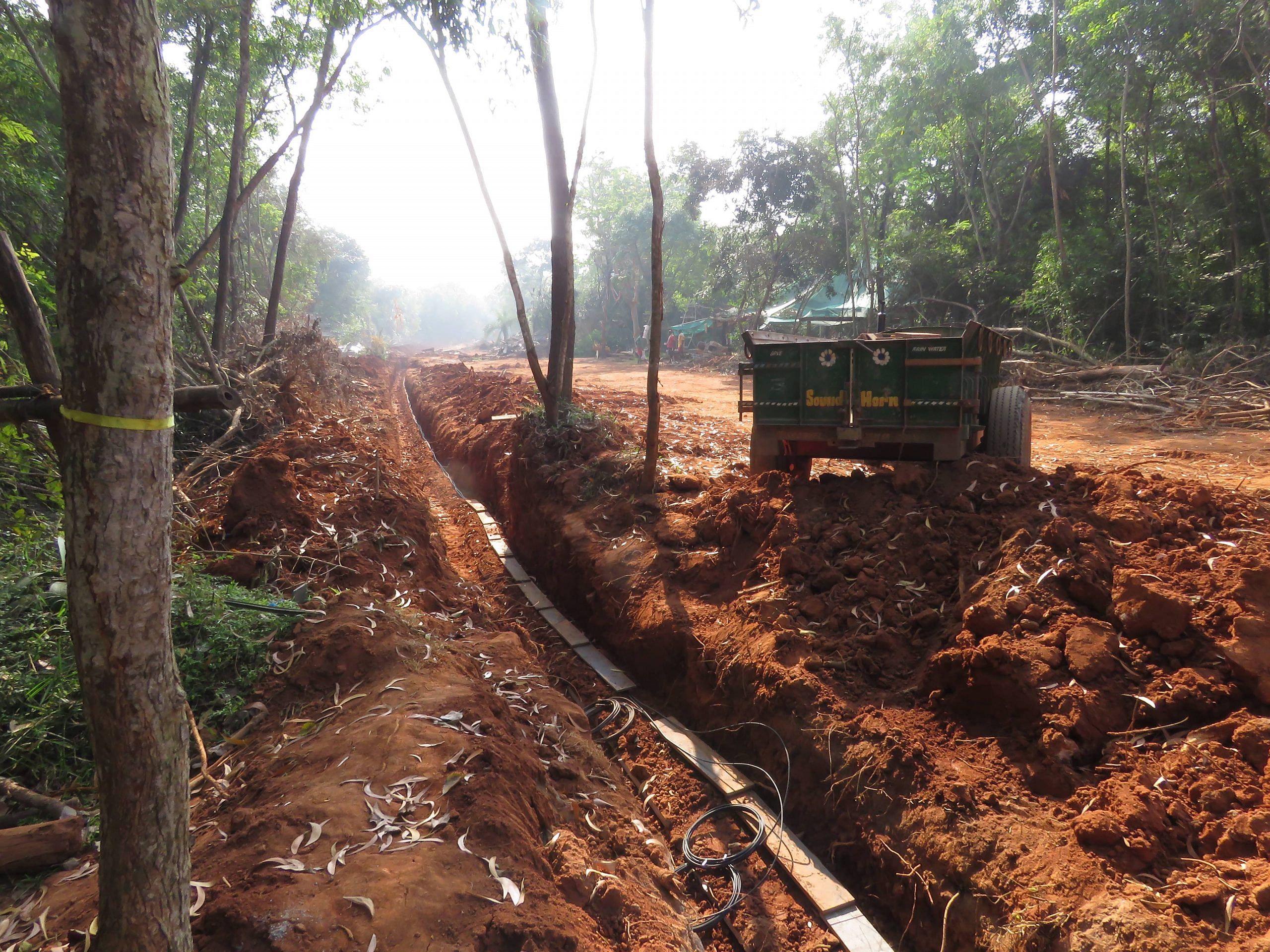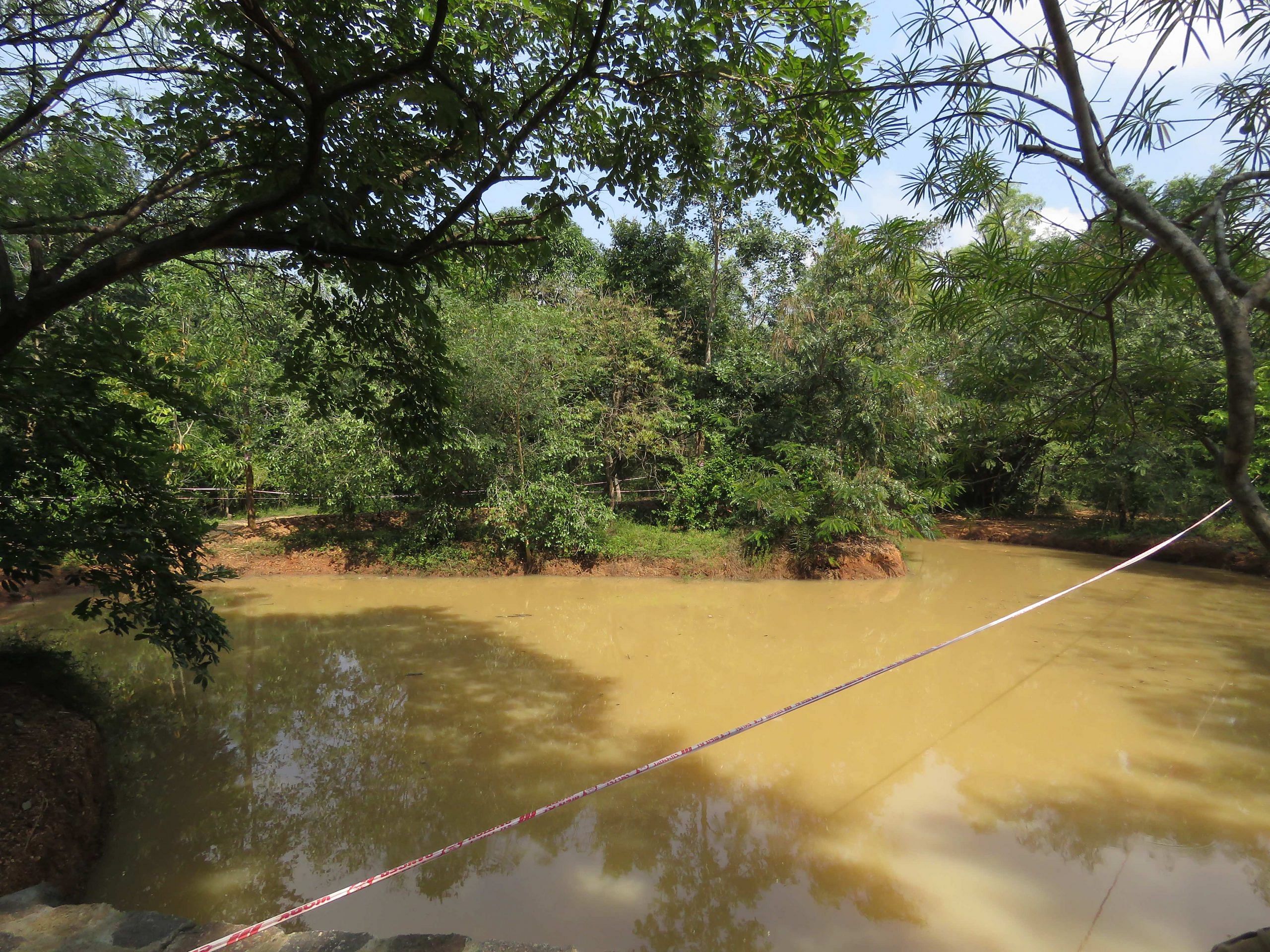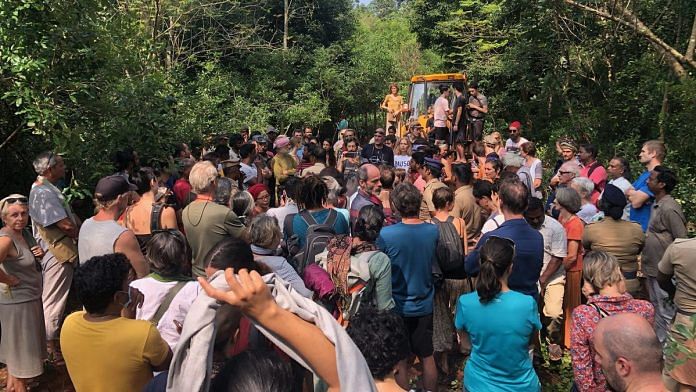When it comes to pronouncing judgements on a dispute between a grounded movement trying to articulate its democratic rights, and a government that does not respect such rights, it is all too easy to blame the ‘foreign hand’. In the case of the situation commented upon by Satheesh Namasivayam in ThePrint — ‘Auroville doesn’t given foreigners right to undermine India’s laws. Govt must step in’, 22 February 2022 — this becomes even easier because actual foreigners are directly involved. But this superficial analysis hides a much more complex picture, and completely glosses over the dubious intentions and the anti-democratic actions of the government itself.
Let me begin by stating my agreements with Namasivayam. As I have earlier commented in detail, Auroville has a long way to go in reconciling a number of issues of internal governance, relations with neighbouring villages that have various shades of caste and class dimensions, and all-too-common human weaknesses in striving for non-hierarchical, harmonious, non-egotist ways of living. The idea of a Neighbourhood Advisory Council, or something along these lines which brings in more meaningful participation of local villages, is a good one, though I don’t think it should be restricted to ‘local panchayat presidents and prominent local citizens’ as Namasivayam advocates, but extended to the gram sabhas (village assemblies) as a whole.
As I wrote in the above-mentioned essay, any further process of building towards the ‘city of dawn’ that Mirra Alfassa, The Mother, envisaged, needs to integrate its surrounding rural areas. This could build on the considerable work that Aurovilians are already doing in these surroundings, apart from their own internal innovations on agriculture, water, architecture, culture and much else that Namasivayam acknowledges. I stress that this is as important an objective and task for Auroville as any other aspect of trying to reach Sri Aurobindo’s and The Mother’s vision of humanity with a higher consciousness.

Also read: Auroville doesn’t give foreigners right to undermine India’s laws. Govt must step in
Namasivayam’s omissions
That said, it is essential to also assert that this cannot happen in an atmosphere of state intimidation and violence. This is precisely what Auroville has faced since 4 December 2021, in a series of incidents that included midnight bulldozing of hundreds of trees and some structures of the Youth Centre, and bringing in hired hands from some distant village to intimidate peacefully protesting residents. The entire chain of undemocratic events, undertaken at the behest of the Auroville Foundation’s Governing Board (which, though an autonomous body, is in practice controlled by the central government), is part of an attempt to impose one model of infrastructure development including significant road construction.

This proposal threatens thousands of trees in the threatened Tropical Dry Evergreen Forest ecosystems that Auroville’s residents have restored on deforested land; it also will block crucial water passages in a watershed that is important for the water security of several tens of thousands of villagers. Residents have repeatedly presented alternative plans for ideas like the Crown Road, which would save most of the trees and respect waterways, but these have been ignored.

All this is neatly omitted by Namasivayam in his article. So are a series of other intimidatory actions, such as the gag order on Auroville’s Outreach Media unit issued in early December, and a subsequent order by the Foundation Secretary to this unit to “hand over all the movable and immovable, tangible and intangible assets including space, phone number, email, soft IP, archives, accounts maintained with Financial services, etc.”
There have also been direct and indirect threats to not renew visas for foreign residents participating in questioning the Foundation’s actions, as if peacefully questioning top-down, unilateral actions by an authority is not a fundamental human right of any person, regardless of whether he or she is a ‘citizen’ in a place. Namasivayam’s omission of all these incidents, information on which is all available in the public domain, cannot be a casual mistake; it seems to be deliberate so as not to expose the nature of the State.
Also read: Sri Aurobindo, a staunch nationalist who turned into a philosopher
Namasivayam’s untruths
It is not only what is omitted, but also what is put into the article that shows the extremely one-sided nature of its analysis. This includes untruths. Auroville’s residents are not preparing to “legally challenge the contours of the (Auroville Foundation) Act”, they are challenging the one-sided interpretation of the Act by the Foundation’s power-holders. It is worth bearing in mind that the Act has a fine-tuned balance between its three constituent bodies: the Governing Board, the Resident’s Assembly, and the International Advisory Council whose function is to advise the Board.
In fact, when it was introduced in Parliament in 1988, Shiv Shankar, then-minister of human resources development, said: “As far as the day-to-day activities are concerned, they will be looked after by the residents through appropriate autonomous arrangements, which will include Residents’ Assembly and its Working Committee. The idea underlying this arrangement is that the residents of Auroville should have autonomy so that activities of Auroville can grow under an atmosphere conducive to harmonious growth.”
This commitment has been completely violated by the recent actions of the Foundation’s Governing Board, in which there was no consultation with the Residents’ Assembly. The Auroville Foundation Act explicitly mandates such consultation, as also empowers the Residents’ Assembly to formulate the master plan and carry out other related activities (which would necessarily also involve interpreting and evolving previous master plans if felt by residents to be outdated). This is way beyond Namasivayam’s contention that residents are supposed to only ‘assist’ the Governing Board; this is either poor reading of the Act, or deliberate and mischievous distortion.
Namasivayam also ignores history; not only Shiv Shankar’s assurance quoted above, but also the words of Prof Kireet Joshi who framed the Auroville Foundation Act: “this Act … is so formulated that it would facilitate what Mother has called “divine anarchy” … that is to say, there is no rule from outside … there is an utter freedom given to the Residents’ Assembly to experiment, to make research and to devise forms by which the divine anarchy can be realised. If the residents of Auroville know how to do it, if they ripen themselves into that consciousness, this freedom is ensured in the Act. In the meantime … although there is a Governing Board which may from outside seem to be a Board which … you might say it is a final authority, this Governing Board is required to consult the Residents’ Assembly according to this Act itself, and there are provisions in the functions of the Residents’ Assembly where it is laid down that Residents’ Assembly will organise all the activities of Auroville.”
Namasivayam says there are 2,500 residents and 10,000 villagers serving them. To the best of my knowledge, there are about 3,300 residents and about 5,000 villagers working in Auroville; it is also worth mentioning that about half the residents are Indians, including many Tamilians whose origins are in the neighbouring villages. I repeat, this should not gloss over the issues of inequality mentioned above, but distorting figures is not a great way of making this point. And as far as I know, there is no “spirituality tests for villagers (that) resemble UK’s infamous virginity tests”; this is a serious and potentially libellous accusation whose basis is unclear. Every person wanting residency status in Auroville goes through a process; there is no special, separate ‘spirituality test’ for villagers.
Also read: ‘World Heritage’ site selection is Eurocentric – and it shows in places that get love & money
Namasivayam’s dangerous call
Next, there has to my understanding not been a single action where Aurovilians have sought to undermine Indian laws, much less its ‘territorial integrity’. Namasivayam’s flimsy evidence for these serious charges is about some foreign youth challenging the jurisdiction of the police during the above-mentioned incidents, and “one youth” challenging the jurisdiction of the Foundation’s Secretary (a central government appointee). First, the video I have seen has a young woman simply telling the police that ‘this is illegal’, which, given that the bulldozing was happening in the dead of night and without work orders, is perfectly understandable. She even says that they should come back in the day with proper laws.
This is not the same thing as challenging the legal jurisdiction of the police, which Namasivayam alleges (unless he has some other video of some other youth, which he should then produce). And incidentally, the police themselves understood the situation and quietly withdrew. Second, by what stretch of imagination can ‘one youth’ challenging the authority of the Foundation Secretary be said to be equated as “foreign residents’ rebellion against Indian authorities” or challenging “India’s territorial integrity”? These, and the title of the article, is a pretty breathtaking piece of false generalisation. And based on this spurious analytical trickery, Namasivayam urges the central government to take over Auroville using an “emergency ordinance”. This is a call for serious overreach of State power.
Such a call falls conveniently into the lap of a State that has become increasingly authoritarian, attempting to push its own vision of a neoliberal, religious nationalist agenda in many parts of India that New Delhi considers its ‘frontiers’. I comment on this in some detail in my above-mentioned article, and will not repeat it here. The “political shock” that Namasivayam says Auroville needs, which the central government has “recently initiated”, is in no way going to help solve the internal and external issues on which the author and I seem to have some agreement, mentioned above. Rather, they are one more attempt at introducing crass commercialisation of tourism and rapid urbanisation, and putting local attempts at relatively autonomous governance in their ‘right place’, that is subservient to the State.
Namasivayam also conveniently does not include news of a series of consultations and gatherings that residents have had in the last couple of months, to arrive at a democratic decision on the proposals for Auroville’s Master Plan, the Crown Road, etc. On 26 January, after a fully documented and transparent process, the formal decision-making process of the Residents’ Assembly voted overwhelmingly for a “pause (to) all clearing, infrastructure laying and permanent construction work … in order to enable the community to define a way forward for Auroville’s development, following: Collective processes – The Master Plan: Perspective 2025’ framework, and other relevant regulations.” This does not in any way support Namasivayam’s contention that Aurovilians are challenging “India’s territorial integrity”. Also taking place is an innovative ‘dreamweaving’ process to bring in all available information, expertise, and perspectives on how Auroville should be developed, which should be supported to take its own democratic and knowledge-based course rather than be undermined by bulldozers, gag orders and intimidation.
In over 50 years of its experiment, with all its successes and failures, Auroville appears to have had a good relationship with government authorities. Residents have repeatedly expressed their gratitude to the generosity of the Indian people and the central and state governments in not only enabling but supporting their ambitious experiment. Undoubtedly, there have been tensions, internal and external (which community does not have them?).
The internal divisions over what kind of infrastructural developments should take place to implement The Mother’s vision. But resolving these cannot be done through violent actions and top-down imposition by the State, siding with one view held by a few residents, ignoring alternative plans that other residents have provided which can help avoid ecological and social disruption, and sidestepping the consultative process mandated by the Auroville Foundation Act. If the Indian State is serious about democracy (and that of course is a very big ‘if’), such high-handedness is completely the wrong direction to go.
Ashish Kothari is with Kalpavriksh, Pune. He tweets @chikikothari. Views are personal.
(Edited by Prashant)



